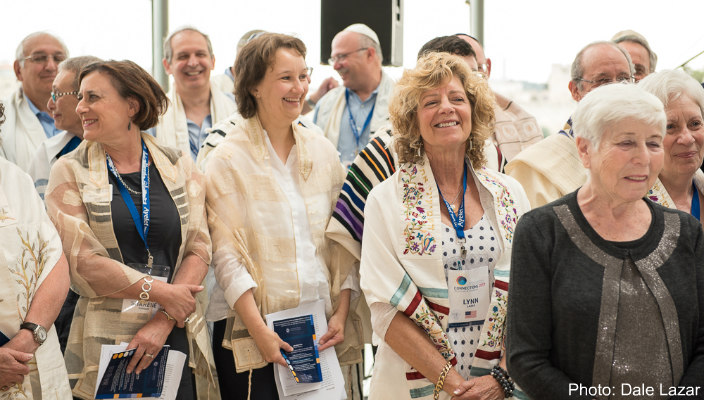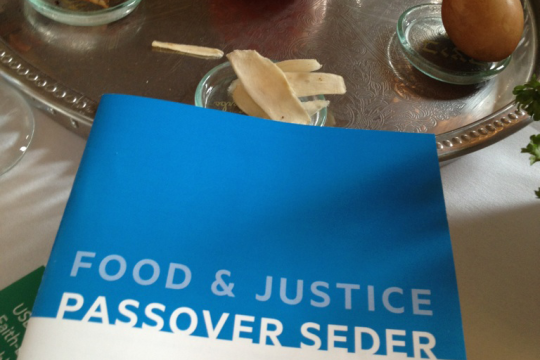
At this point in my career, I have attended countless Jewish leadership conferences. In many instances, I have been on the steering committees responsible for selecting a theme, developing the program, wrangling speakers, and planning the logistics. Although the audience, agenda, and timing of each conference create unique challenges, the people responsible for scheduling always grapple with the same old question: what do we do about Shabbat?
In too many cases, conference organizers avoid Shabbat programming like the plague, scheduling their programs between Sunday and Thursday. Shabbat is seen as such a logistical nightmare and religious tinderbox that international conference attendees are most often left to their own devices.
This is a missed opportunity.
The intrinsic power of Shabbat is its ability to bring people together – family, friends, and complete strangers. As such, it is the responsibility of conference organizers to harness this power and use it to unite their participants and further their conference’s Jewish objectives.
In the months leading up to May’s CONNECTIONS conference in Jerusalem, the four-day biennial event hosted by the World Union for Progressive Judaism (WUPJ), our steering committee decided to embrace Shabbat rather than work around it. After all, with 450 lay leaders, rabbis, students, and congregants from Progressive, Reform, and Liberal communities around the world in attendance, Shabbat provided the perfect opportunity to bring them together to network, study, pray – and eat.
I will never forget how we embraced Shabbat, and what it meant to all of us.
Late Friday afternoon, we made our way to Jerusalem’s First Train Station (Tahana Rishona) to welcome in Shabbat early. In partnership with eight Reform congregations in and near Jerusalem, hundreds of Israeli congregants joined us for an upbeat Kabbalat Shabbat the likes of which many of our international conference attendees had never experienced before. Accompanied by a band and with joyous group singing and dancing, strangers passing by couldn’t help but join us. Following the service, the international delegates were welcomed into the homes of locals for Shabbat dinner.
The song and prayer continued Shabbat morning when dozens of rabbis and young rabbinic students from five continents led us in small group Torah study and a morning worship service with more than 450 attendees. We used a new siddur (prayer book) compiled from 28 Reform and Progressive prayer books from around the world, reflecting 18 languages spoken in the 30 countries represented at CONNECTIONS. Following services, the delegates ate lunch together and took walking tours of Jerusalem, continuing their meaningful personal discussions.
We embraced Shabbat, and Shabbat embraced us in return, strengthening us as individuals and as a worldwide movement. We experienced a dream Shabbat, with the warmth of a family gathering amplified 100 times over.
First and foremost, we all were impacted deeply by the unifying power of Shabbat prayer. Music and song are crucial elements of Jewish prayer, and they connect us across geographic borders, despite our cultural differences. Our Shabbat services provided us with the opportunity to bring everyone together and emphasize that no matter where in the world you reside, you are always welcome in our synagogues, and your prayers meld perfectly with others. It would have been nearly impossible to make such a profound statement during the work week.
Shabbat also allowed us to feel our numbers. During the first two days of the conference, we split up into smaller groups for workshop sessions and site visits, but on Shabbat we came together en masse. Although many of our international conference attendees are part of small congregations, coming together in this way highlighted a thrilling realization for all of us: we are, in fact, part of something big, so much bigger than any one of us.
What’s more, the relaxed atmosphere on Shabbat provided the ideal circumstances for discourse and decompression. After two days of intense learning about issues ranging from Torah study to education to social justice, it was important to rehash our synagogue experiences and share our differing opinions on Jewish life, to listen and be heard, to broaden our horizons and strengthen our resolve. Shabbat provided our conference participants with an opportunity to internalize what they had already learned and experienced.
Most important, our Shabbat together allowed us to display the very best of Judaism. Instead of merely discussing our heritage and tradition, we resolved to live our tradition by incorporating Shabbat into the programming. There’s attending a conference that makes you think, and then there’s attending a conference that makes you feel, connect, and grow.
Immediately following the conference, our steering committee received dozens of e-mails thanking members for their hard work and congratulating them on creating a conference that was spiritual, uplifting, inclusive, and meaningful. In every instance, these participants mentioned their highlight: Shabbat.
As we know, Shabbat is the “secret sauce” of Jewish life, so it should come as no surprise that a Jewish leadership conference would be positively impacted by its inclusion. Although many may still fear the logistical challenge of developing Shabbat programming, I implore them to persevere. Even after thousands of years, Shabbat remains an unparalleled communal, spiritual experience. And when you embrace Shabbat, Shabbat embraces you in return.
Have something to say about this post? Join the conversation in The Tent, the social network for congregational leaders of the Reform Movement. You can also tweet us or tell us how you feel on Facebook.
Related Posts

Passover 2024: The Three Central Messages of Pesach

Modern-Day Plagues of Injustice and Inequality
